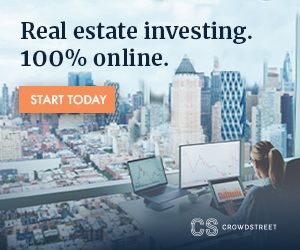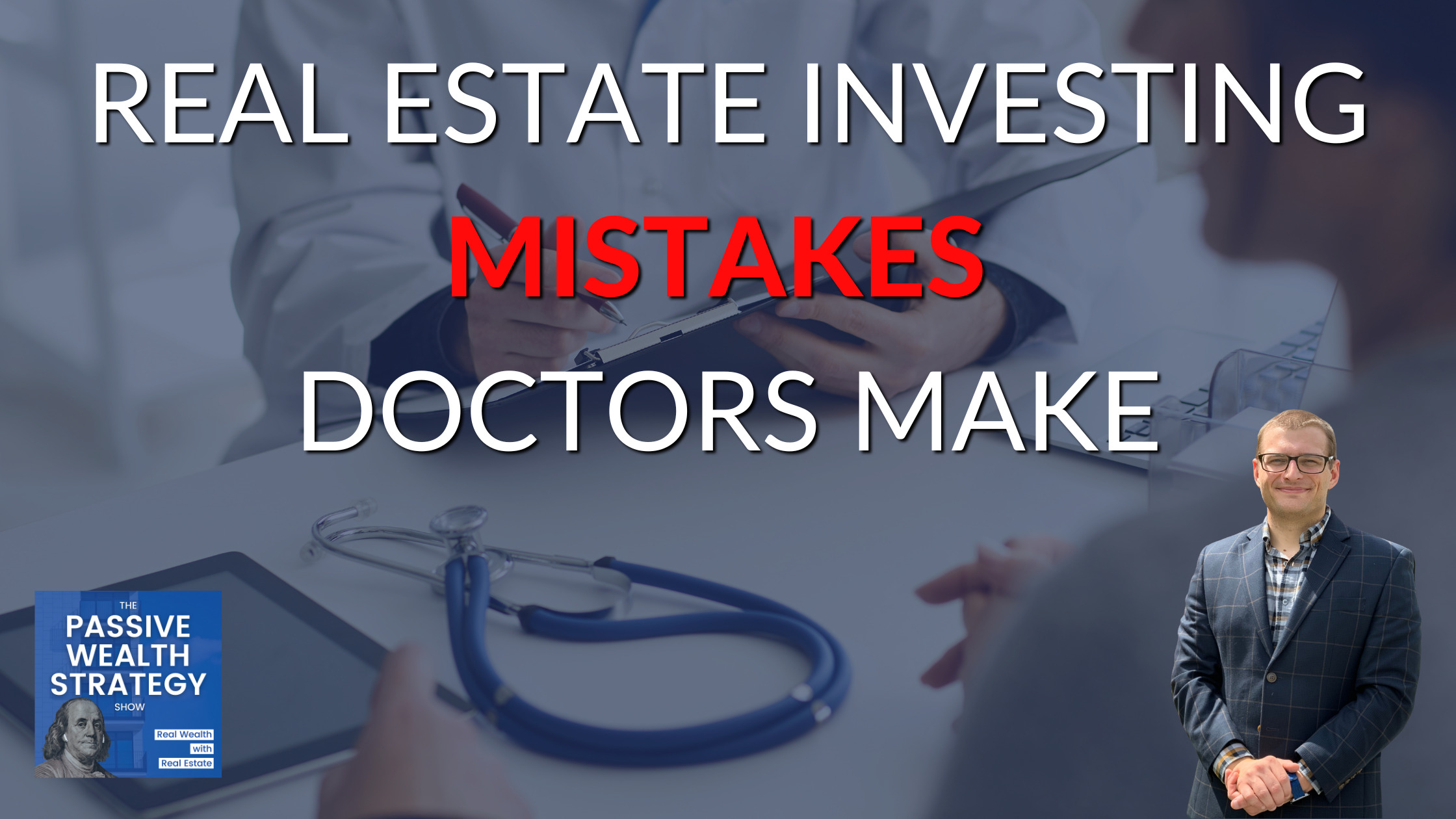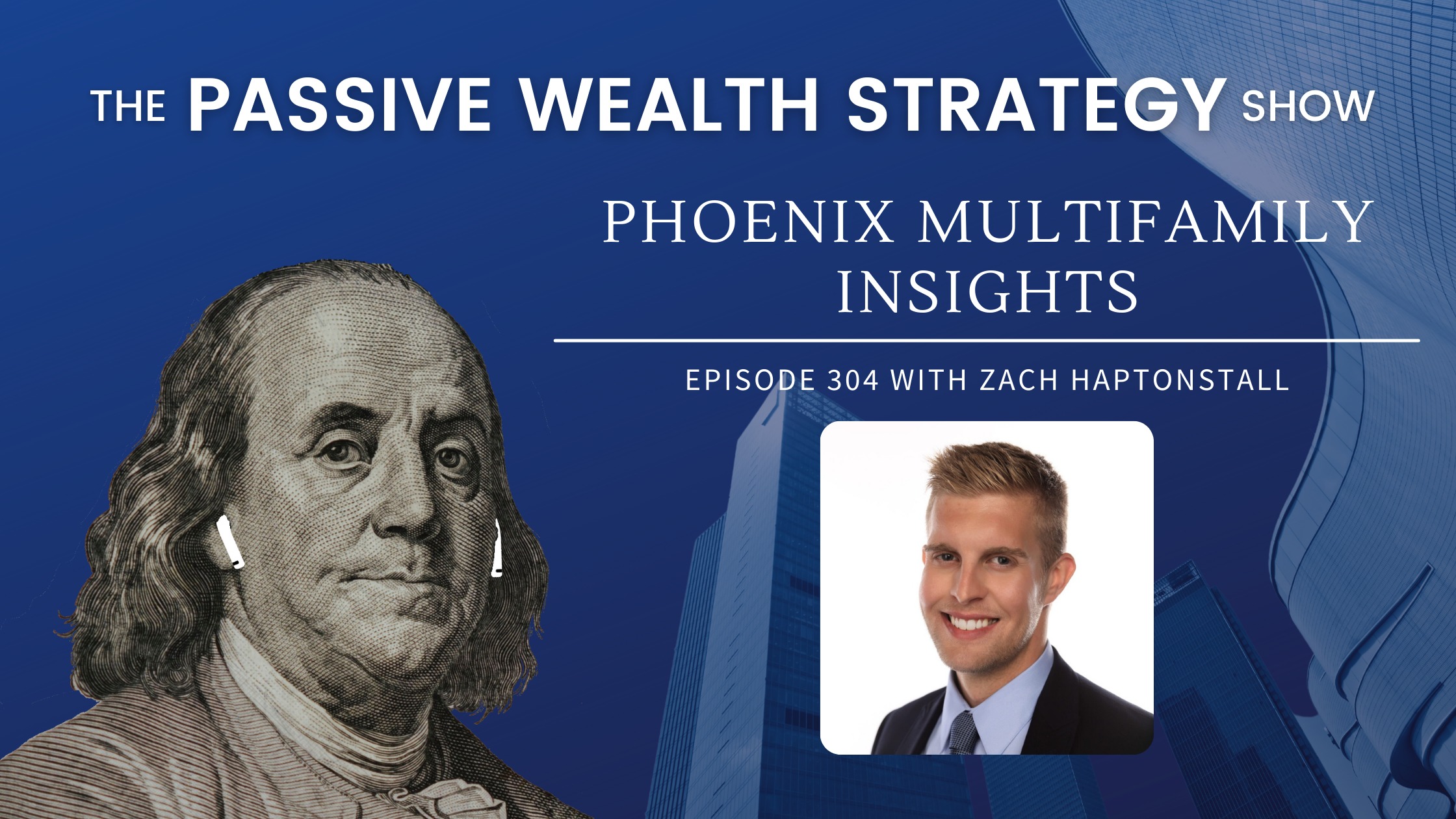
Phoenix Multifamily Insights with Zach Haptonstall
Zach, thank you for joining us today.
Yeah, no, thanks so much for having me on Taylor. I really appreciate it. I look forward to providing some value for your listeners. So very grateful to be on the show.
Happy to have you. And I have no doubt that you will provide plenty of value for the listeners today.
For those out there who don’t know about you and your business, can you give us a quick intro to yourself and rise 48 and everything?
Yeah, absolutely. Taylor, thanks so much. So yeah so rise 48. There are three of us who started the company back. Ron Sandy, Robert chef chick, myself, all three of us have quit.
Any other W2 jobs or businesses were associated to focus on this business a hundred percent. All of us are here, local, and in Phoenix, Arizona. We’re only focused on buying properties in Phoenix at this time. Okay. So we’re looking for value. Add multifamily properties here in Phoenix. Metro and we have a business office here in central Phoenix.
I’m out here right now. Actually, we’re all here every day. In addition to the three principles, we have nine full-time W2, salaried employees. So we have a team of 12, that is fully focused on our portfolio every single day. Since 2019 we’ve acquired. 14 assets and worth over $250 million about 2000 units or so.
So we were very fortunate to really gain that momentum and kind of leverage our local relationships to make it work. So that’s a little summary of us at rise, 48.
Awesome. And actually, I thought back about it. I met Rob or a few years ago at a real estate guy, a bed there in Phoenix. Yeah.
I’m familiar with him as well. And yeah, totally. It’s a very small world Southern that I noticed when I was researching you guys and learning about your business is really how concentrated or a hundred percent concentrated you are in Phoenix. And I wanted to learn more about the Phoenix market because.
I’ve been there a couple of times. It always looked great, but I wondered, where is the opportunity? Because it’s such a pretty well-established city. So like to learn more about that market.
Yeah. Good question. Say are, so I was born and raised here in Phoenix, lived there my entire life.
So I know it pretty well. And it gives you an idea. Phoenix is now the fifth-largest city in the entire country. Okay. It’s the fifth-biggest market. And fundamentally when you look at population yeah. Rent growth, job growth. It’s either neither number one nor top five for everything.
Okay. So it’s us census bureau just recently announced for the fifth consecutive year. Phoenix is number one in the entire country for new population growth. Okay. So we were already number one, pre-COVID since COVID, all these fundamentals have accelerated even more people are coming here.
Phoenix is number one for rent growth in the entire country. I think RealPage just announced the July trailing 12 organic rent growth was over 21%. Which is just unprecedented. I know that the US national average was between four to 5% in that same period. So when you look at population growth, rent growth, Phoenix is number one really with no competition and then, job growth, depending which metrics you look at, it’s top five, top 10.
And so it’s a market where it’s obviously very large. We have a ton of people moving here from primarily California, Washington state, New York, New Jersey this higher cost of living environments, right? With higher taxes, they’re coming to Phoenix, which has such strong job growth. They might be making the same, if not more money they were making before.
And they’re coming into a market with a much lower cost. Okay, so that Delta is a big reason why you’re seeing such strong growth here. And the truth is Taylor. We fall on workforce affordable house. Okay. So the majority of the demographic lives in the type of properties that we buy.
Now we add value to. Increase the value and create a profit margin for our investors. Okay. The reality is there’s not enough inventory of workforce housing for all the people coming here is literally a supply and demand issue in favor of landlords and investors. Okay. Where there’s just, and it is massive, it is a massive market.
There’s plenty of inventory. With all the people coming here, almost everything, almost every property is 95, a hundred percent occupied and people just keep coming. And so it’s the perfect storm of fundamentals. It’s not overbuilt. The absorption is actually much higher. Then the new construction of the pipeline.
Okay. And so all these different factors that are making Phoenix really strong, one powerful statistic that we provide to our investors for our opportunities. Like last year, the bureau of economic analysis, which is our federal agency to Bea, announced that Phoenix was number one in the entire country for personal income.
8.4%. And that’s a powerful statistic because it indicates that tenants can afford these rental increases. They’re making more money. And so it’s just all these things that really, make Phoenix such a strong market. And with that, Taylor. I mean that the secret’s out, right? So all of these large companies, all the private equity companies, institutional life insurance companies, they’re all trying to deploy capital in Phoenix.
So it’s extremely competitive. Cap rates are being compressed. Prices are obviously going up. And so there’ll be a private syndication group like us, who serves the retail investor everyday people, we’re raising money for people 5,100 K minimums. It’s tough to compete with these large companies that have a ton of equity and they have a lower cost of capital.
They don’t need to get as strong a return as we do for our investors to be interested. We really have to leverage our local relationships. Nine of our last 10 acquisitions have been completely off-market with no competition from anybody else directly through broker relationships.
Okay. So between. The 20 to $50 million purchase price space. We really are getting the first look and a lot of these deals from the top five to six brokerage groups. And it’s because we’re local, we were able to form these relationships prove that we’re credible that we perform and do what we can or what we say we will rather, and that we move quickly.
Okay. So being local has a lot of advantages and those are some of the reasons we’re. So we’re so bullish on it.
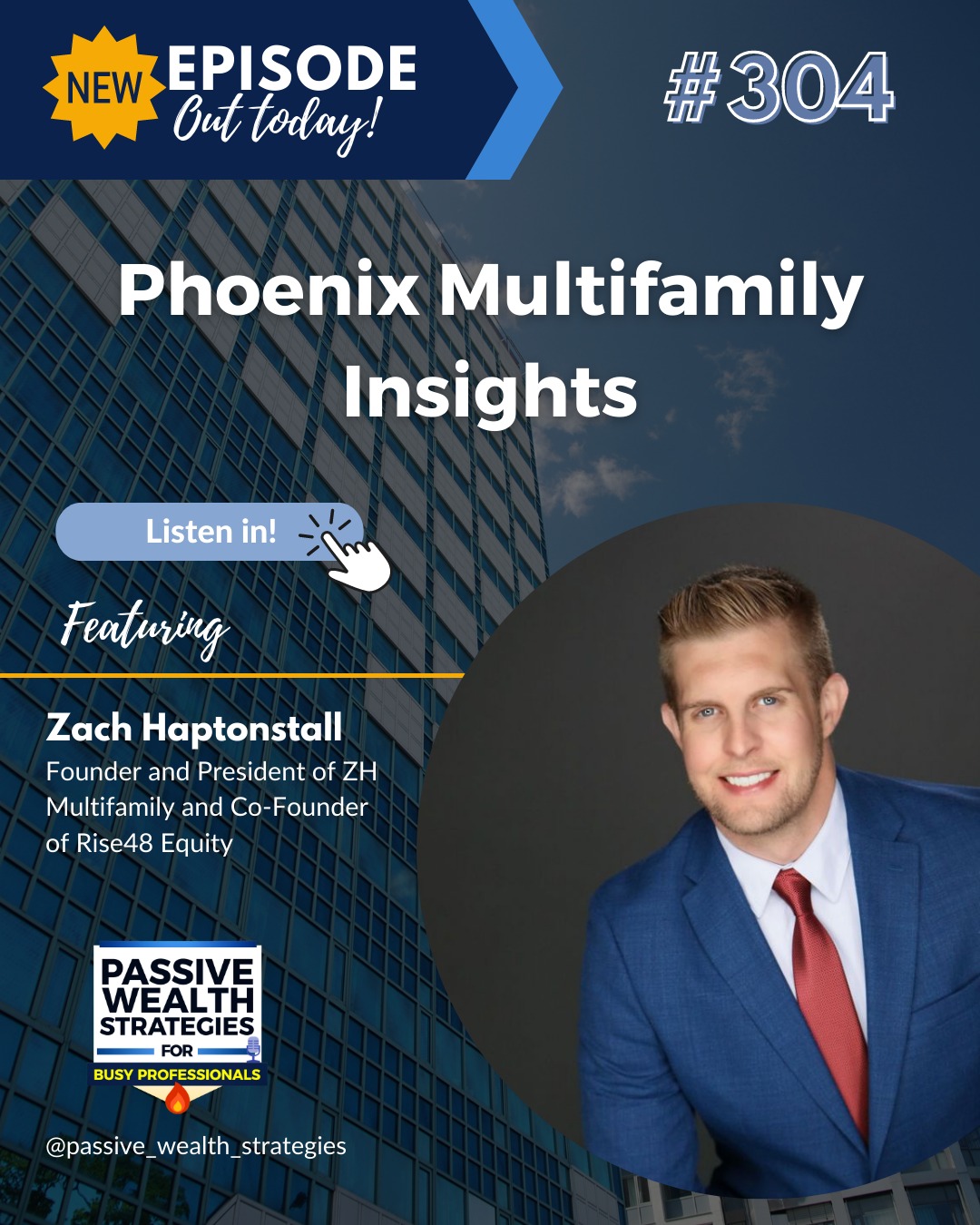
Phoenix Multifamily Insights with Zach Haptonstall
Awesome. Yeah. It definitely seems like it has very great fundamentals and I wonder speaking of the population growth migration, I think one of the memes that you hear, if you will, is that everybody’s fleeing California and they’re going places like Phoenix or Dallas and the other, kind of hot cities.
Is that really accurate or are people coming from all around Phoenix or is
it both? It’s a hundred percent accurate. Pre COVID people were fleeing California coming. Okay. And since COVID, it’s just accelerated. And yeah, if you had, I’ve seen plenty of data, which is from credible sources that indicate California is the number one source.
But with that said, it’s not just California, they’re coming from all across the country. Okay. A lot of colds. Cold weather environments. A lot of places, as I mentioned, I saw something recently that said, it’s like California, Washington state, New York, New Jersey are really the top four.
And but they’re coming from all across the country to Phoenix because they see there’s so much opportunity. I know us bureau of labor statistics recently announced they rank Phoenix as the number five city in the country for projected tech job growth for the next decade. Okay. So you have all these tech companies coming here just this year.
Just last week you had Facebook announced they’re building an $800 million data center. You’ve got Google building, huge data centers, Microsoft, you name it. Every big tech company is building manufacturing. Or a data center here. You have Taiwan semiconductor, which is the largest producer of Silicon microchips in the world.
They announced this year, they’re building a 35 billion with a B dollar manufacturing center to build chips, not to be outdone Intel. About a month later, announced they’re building a $20 billion manufacturing center to build microchips here. So you have all these, gigantic national international companies coming here.
And it’s because they obviously. Having thorough research and development departments, they know that they’re strong fundamentals. They know what they’re doing. And so it’s a good indicator. Since 2017, Amazon has built 17 distribution centers here, how they’re building even more, so there are just all these big companies coming here just for all these different reasons.
We’ve talked. That’s, that’s all very good to hear and it’s great to hear as well that, we’re bringing some of this chip manufacturing over to the US because that’s been one of the big constraints for a lot of industries, the inability to get chips throughout COVID.
So it’s good that we’re going to be making some of that more here in the U S. Yeah. One of the things that come to mind when I think about Phoenix and the Southwest, in general, is any impacts of climate change. We’ve had Neil Baba on the show in the past to talk about climate change and its impact on real estate and various markets.
And in Phoenix in particular. One of the things that come to mind for me about concerns. If it’s getting hotter, it’s like water availability and our folks are gonna really, be comfortable there if the temperatures keep going up because it’s already pretty hot. What do you see the city or the area doing to deal with that?
Futurist temperatures continue to rise and things.
Yeah, no it’s a good question. Say or it’s the question we’ve been getting a lot recently from investors. And so I’m part of what’s called the greater Phoenix economic council, which is basically an organization that recruits and provides data to national and international companies that are looking to relocate.
Okay. And so they’re really on the leading edge and just about every mayor for every city in the state of Arizona. It just about is a part of this council. And so they’re very well connected, with legislation concerns like this. And so we had a meeting a couple of weeks ago and they actually had a full presentation on this topic and they basically just discussed that Phoenix has actually been preparing for this in Arizona for about the last four decades.
Okay. There was legislation, signed in the eighties that really preserved a lot of the water usage. And they had a statistic and don’t quote me, this is rough. I don’t want to give you the wrong data here. And if listeners have some questions, I can pull it out and send it to them exactly from the G website, but it was something like we’re using 20% less water now in Arizona than we did in the 1980s.
And the population growth has skyrocketed significantly. So there are a lot more people here and because of the robust canal systems that we have that pull from various places like the healer river, the colorado river it’s really been, it’s been well planned out as far as the infantry.
Okay. So it has been a hot button topic nationally recently, and we’ve even had investors just in the last eight weeks asking us about it. And so it was interesting to see that and, My partner, Ron, he has a good point too. He mentioned this a couple of weeks ago because the investor asked him is, if all these major huge companies like Amazon Facebook, Apple are building a data center in the east valley here as well.
Taiwan semiconductor. If they’re investing, hundreds of millions, if not tens of billions of dollars, In this area, they’ve done their thorough research on all factors, because most of these are industrial buildings, which rely on water and water is very important to what they’re doing.
There are more and more data coming out. And we feel pretty good about it, honestly that it can continue to absorb all these people that are coming. And the good thing about feeding for people who aren’t familiar is that. The Phoenix, Maricopa county, first of all, is where Phoenix is.
And when you say the Phoenix, Metro, it actually consists of several other cities. Okay. You have Phoenix, Scottsdale, Tempe, Chandler, Mesa, et cetera. There are tons of different cities. All of these cities are in what’s called Maricopa county. Maricopa County is the largest geographical county in the entire country.
There’s no county geographically bigger the Maricopa county. Okay. And so it’s a very low density. Meaning people are not living on top of each other. There’s a lot of land. It’s not landlocked, but it’s really all connected. You can literally drive for over an hour going from the west valley part of Maricopa county to get to the east valley.
Okay. The other side of Maricopa county. So that’s really how big the Phoenix Metro is. So as more and more people come here, it’s just growing further and further out. And there’s so much land available. Okay. So that’s why you’re seeing it is it’s not like some of these major urban cities, like New York City, Chicago, things like that, or that are so dense, and that people are being stacked on top of each other.
And so those are some of the things that we’ve been saying. And the fact that all these big companies are coming here, is encouraging for the water sector.
Yeah, absolutely. You’re right. And they certainly have a lot of, engineers and tech people look into that. And for data centers, in particular, cooling is a huge aspect of that.
So they’re looking at that. Now. I also wonder about the future of yourself and your company, because to, tell the listeners about, some of the research I did about you guys is you have a, there your portfolio they’re in the Phoenix area and all of your properties are branded so that someone can.
Pretty easily tell if it’s one of your properties or not, and you’re growing at a fast rate. So eventually you could theoretically hit a point where we own too much of Phoenix and what are we going to do next? So what do you see into the future over the next couple of years? Do you plan to just stick in Phoenix and I don’t know.
What are you going to branch out? What are your thoughts about it?
Yeah, no, it’s a good question. Ultimately, when we look at our company and our goals, our number one goal is to serve our investors. Okay. And that could sound corny or cliche, but it’s true. I, if we don’t get strong returns, if we’re not executing our business plan and creating strong returns for investors, We don’t have a business.
Cause they’re not going to keep investing with us. We can’t keep buying deals. And one of our advantages is because we’re so concentrated right now. As of today, we have over 1500 units. We can get to any one of those deals within 20 to 30 minutes. Okay. So store asset management and our construction management are very efficient and in tune.
Okay. And the thing about, when we look at other markets, we like other markets such as some of the buzz words. Or quote, unquote, sexy markets right now are Boise, Idaho, salt lake city, Colorado Springs. Some people like Vegas. We don’t really like Vegas at this point. We think it’s still too volatile.
And those are all great markets, right? They have strong growth just like Phoenix, but all those markets are tiny compared to Phoenix. Okay. Phoenix is so huge. There’s so much, there’s so much more inventory to purchase. Phoenix is the most transaction. Market in the country from a brokerage standpoint, meaning buying and selling deals are constantly trading.
And so right now, for the foreseeable future, because it’s not only such a strong market and we think it’s the number one multifamily market in the country when you look at fundamentals. But because we have such strong concentration here and we have advantages, our plan is to continue to grow here and stale.
And Phoenix, because there is just so much inventory and there is so much runway. As we continue to grow, if we get to the point where we have so much equity and we have the infrastructure in place where we feel like we can responsively go to other markets and execute.
Then we will look at other markets. Earlier this year, we looked at Tucson, which is about an hour and a half south of Phoenix is a different market. It’s an Arizona. Obviously, people are familiar with Tucson. We looked there. Tucson is a strong market, in a national context, it does better than most in the country.
It’s nowhere near. Comparable to Phoenix, and it’s not fair to compare it just who doesn’t have the fundamentals. We like some of those markets, I mentioned Boise, salt lake city Carto Springs, places like that. So we may look to expand to those types of markets in the future.
But right now we’re just focused on really optimizing and building on infrastructure. We’re still building out our company. Like I mentioned, we have nine employees. We’re going to be hiring a couple more here soon. We currently are doing all of the construction management in-house we need between our director of asset management or construction manager, construction coordinator.
We’re bidding out all of our own vendors. We’re micromanaging them every single day. We’re now sourcing all of our materials directly wholesale. Okay. So we buy our materials directly from the warehouse. We require that all of our vendors. You as our materials, the warehouse drop ships them at our properties on our schedule, and so we truly control the supply chain which prevents any vendors or construction companies from, increasing prices and blaming it on inflation. Okay. So because we have that volume, we have these processes in place. We feel like we are achieving returns that are much stronger than most people are going to find anywhere else in the country.
And the velocity of our deals has been 12 to 30 months. We underwrite them for a five-year horizon, but we’re drastically outperforming those timelines, because of these different factors. So right now, our plan is to stay in Phoenix. I think in a couple of months, we’ll be.
Top 10 buyers and Phoenix for the last two years, we’ll be right there with Blackstone, Goldman Sachs, and some of these big companies. And our goal is to be the dominant force in Phoenix because there’s just so much runway here. And so if we get to the point where we have so much demand and we may start to look elsewhere, but it has to make sense.
We have to feel that we can responsibly operate and get the best returns for investors.
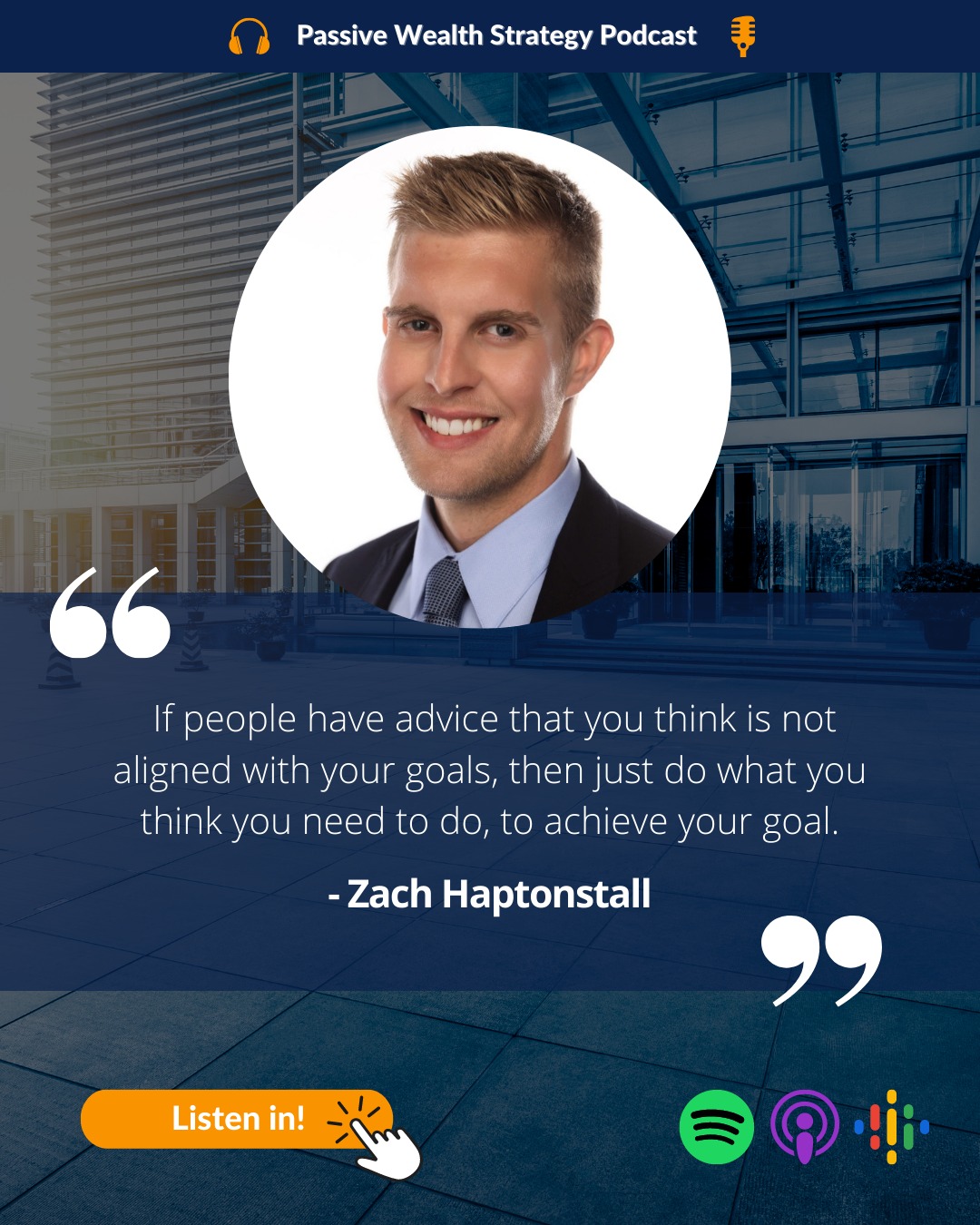
If people have advice that you think is not aligned with your goals, then just do what you think you need to do, to achieve your goal.
Zach Haptonstall Tweet
So we hear a lot of folks with, that number of units in a concentrated area, concentrated area, you’re doing your own construction management. We hear a lot of folks also, vertically integrating, starting their own property management, bringing that in-house it sounds like you’re you haven’t done that yet.
Is that on your radar or do you not want to get into it.
Yeah. You know what we’ve talked about it right now. We don’t have any plans to just because the third party management company we work with, I know the owner their office is right down the street. They manage over 15,000 units here in the market and we’re their number one client as far as the number of units.
So we have a lot of autonomy with them, which we really appreciate and it’s been going well. But we are in the process of starting our own construction. So in the next 30 to 30 to 90 days, we’re going to start hiring our own construction crews and have a general contractor who’s our employee. And that will allow us to further control, the labor, the time, and the energy right now, we’re using third-party general contractors, but we’re managing them each day.
Our construction manager, who our employee spends 40 plus hours a week. Walking units that are undergoing renovations, making sure they’re staying on schedule on budget. And that’s why we’ve been so effective. It was really keeping an eye on these guys. So we’re going to slowly start to integrate our own construction crew, prove the concept.
And then our goal was to build that out and have several crews. And that could have, 20 to 50 employees by early to middle of next year. So that’s our focus right now is to make sure that we build out the construction arm of the company that asset management team on the real estate committee.
To stabilize and then if, in the future, it makes sense to do property management. We may look at that. It may make sense, now that we’re getting more volume, but we don’t have any plans at this time.
Interesting. In general, overall, it sounds like a great way to attack a great market that has good fundamentals for the future.
So definitely appreciate you teaching us all about that today. Right now, we’re going to take a quick break for ours. All right, Zach, I’ve got three questions. I ask every guest on the show. Are you ready?
I’m ready. Let’s do it. Great.
That's our focus right now. To make sure that we build out the construction arm of the company. The asset management team on the real estate committee. Then if, in the future, property management.
Zach Haptonstal Tweet
First one. What is the best investment you ever made other than in your education?
Good question. Honestly, I would say it was our first multi-family deal. That might sound like a cop-out, but it was not syndication. We did a tenant in common or a tic structure. So at the time, I had been living off of savings for 14 months, I quit my job to pursue this. I basically had, I had burned through a lot of money and we needed to get this deal done.
Okay. And so I put, all the money I had left in this first deal was a 36 unit apartment building in a few of us, BIC, Ron, Robert, my two partners, and a couple of other people. We just put in big chunks of our own money. To make this happen so that we could, learn firsthand how to execute a value, add a business plan and how to do asset management.
So we had no passive investors, it was nitty-gritty. We had to figure it out, make it work. And that was my best investment because it was a strong event. First of all, we almost doubled the money in less than two years, but it also gave me so much experience momentum, and confidence to move forward and really grow in the business, and start to build out the syndication platform.
So I’d say that’s the best one was our first multi-family acquisition.
Nice. You really really made a good bet there. You really went for it, which I certainly admirable. We had the best investment. Now we go to the other side of that coin, the worst investment. What is the worst investment you ever made?
Yeah. Good question. So this was several years ago. The Superbowl was here in Phoenix and I was talking to somebody the Cardinals weren’t playing in it, but the super bowl is here in Phoenix. And I consider this an investment that went wrong, but people were telling me how they were leasing up hotels.
And then suddenly seeing them. Cause there’s so many people that comes here, there’s not enough hotels available. So there was a brand new luxury hotel called talking stick resort. And what I did is I reserved like a suite for four nights, Thursday through Sunday night at a thousand bucks a night with the plan of subleasing it to somebody else to make a profit.
And everybody I talked to said, yeah, you’re going to make a killing. That’s the best resort everybody’s coming here for the Superbowl. Cause not only was the super bowl. But like the weekend after was the Phoenix open, which is a huge golf event, et cetera. So anyway, I was like, okay, awesome.
I’m going to get this thing for a thousand bucks a night. I’ll probably double my money at least, and be able to sublease it for $2,000 a night. I put it on Craig’s list. All of these websites. Nothing tailored, no bites. So I had to eat it and I stayed in the hotel myself. Cause I was like, I spent four grand.
I might as well try to enjoy it. And it was boring and lonely. Cause it was just me and I had to go to work like Thursday, Friday. So I like woke up and went to work. So anyway, that was not smart. I prefer to walk my family. It’s more conservative.
It’s more conservative. You’re not making a big bet.
Sell it being able to sell one product one weekend, thought for half a second, I was trying to run the timeline in my head if maybe that was the COVID super bowl, but that super house super will happen before COVID hit.
And yeah, this was like the S I think it was, I want to say it was Seahawks Patriots.
I can’t remember which year it was. I want to say maybe 2015 or so something like that. 16, maybe. I don’t know.
I don’t know sports, so I’m not the best guy to lean on for that one. My favorite question here at the end of the show is what is the most important lesson you’ve learned in business and investing?
Yeah. Good question. Honestly, it’s, like I said, I had quit my job and I was making really good money, and I quit it because I wasn’t really happy. And so I went through a lot of adversity during that time. And I had a lot of people tell me you’re not doing the right thing. You can’t do this.
That’s crazy. And so what I wanted is to not listen to other people, like you have to have a warrior mindset. Where you don’t care what other people think. And obviously there’s good advice out there. So you should listen to some of those people, but if you have a sense that people are being critical of you or giving you negative advice or discouraging you and it’s contrary to what your instincts tell you that don’t listen to them because not everybody has your best interests in mind.
And just because they think they have your best interests in mind doesn’t mean they’re right. So I think that’s what I learned is to really follow my instincts and I don’t not listen to everybody, obviously, you want to listen to good guidance and people who are in your corner, but if somebody hasn’t done what you want to don’t listen to them.
Do you know what I mean? And if they have advice that you think is not aligned with your goals, then just do what you think you need to do, to achieve a goal. So that’s my response there.
Absolutely. As a real estate investor, even one, that’s not making quite as big a move as you did.
You’re going to hear naysayers. People who say, blah, blah, blah, real estate. You’re not going to make money. So on and so forth. That’s usually people who have never invested in real estate and don’t actually know what they’re talking about.
Exactly. That’s right. Yeah. You can’t listen to the negativity and the.
That’s right.
Absolutely. Zach, thank you for joining us today, teaching us about a Phoenix, your business model, the future of the market, and all these other great things. Congratulations on your success so far. If folks want to reach out and want to get in touch with you, they want to find your company or any of that great stuff.
Where can they track?
Yeah, thanks so much. Thanks for having me on. I really appreciate the opportunity. Had a lot of fun here today. Yeah. If you want to learn more about us, you can go to our website rise48equity.com. It’s R I S E the numbers for equity.com. You can email me [email protected].
And on our website, you can set up a call and click a link, set up a call. If you want to learn anything about what we’re doing. So thanks so much.
Awesome. Thank you once again to everybody out there. Thank you for tuning in. If you’re enjoying the show, please leave us a rating or review on apple podcasts that help other people learn about the show, because that helps us rank higher in the apple podcast ecosystem.
And I’m always real with you guys that give me the warms and fuzzies. Cause I get to see that you’re engaging with the content and you’re escaping and the wall street casino. Along with us. If you know anyone who could use a little bit more passive wealth in their lives, please share the show with them and bring them into the tribe.
I want to thank you for tuning in once again. I hope you have a great rest of your day and we’ll talk to you on the next one. Bye-bye.

Rise 48 Equity
About our Guest

Zach Haptonstall
Zach Haptonstall is the Founder and President of ZH Multifamily and Co-Founder of Rise48 Equity. He is an experienced Multifamily Apartment investor currently residing in Scottsdale, Arizona. He is a Lead Sponsor and Equity Owner of 420 units across five properties in Phoenix, Mesa, and Scottsdale worth over $48MM.
He is also the Founder and President of The Phoenix Multifamily Association, a Phoenix-based organization that holds monthly speaking and networking events focused on Apartment Investing. He has been a licensed Real Estate Agent in Arizona since 2016. He is a former live television news anchor and sports reporter for Arizona PBS and co-hosted a show on Fox Sports Network Arizona. He is the former Co Owner and Director of Business Development for Sage Hospice and Palliative Care in Scottsdale, Arizona.
Mr. Haptonstall holds a Master of Business Administration from the Colangelo College of Business at Grand Canyon University, and graduated Summa Cum Laude with a Bachelor’s in Journalism and Mass Communication from the Walter Cronkite School of Journalism at Arizona State University.
Episode Show Notes
Zach Haptonstall is the CEO and Co-Founder of Rise48 Equity. He Founded ZH Multifamily in 2018 and grew his portfolio to $35M. ZH Multifamily founded the organization, The Phoenix Multifamily Association “PMA” where Zach hosted 200+ members and held monthly speaking and networking events. In order to scale and add experts to the team, he retired ZH Multifamily and PMA in 2020 and Co-Founded Rise48 Equity. His professional background includes Healthcare Sales and Administration. He is the former President and Co-Owner of a Hospice Organization in Phoenix with 110+ Employees. He is also a former live television news anchor and sports reporter for Arizona PBS and co-hosted a show on Fox Sports Network Arizona.
Zach holds a Master of Business Administration from the Colangelo College of Business at Grand Canyon University, and graduated Summa Cum Laude with a Bachelor’s in Journalism and Mass Communication from the Walter Cronkite School of Journalism at Arizona State University. He attended Colorado Mesa University on a football Scholarship his Freshman Year of College. He has been a licensed Real Estate Agent in Arizona since 2016. He is also an official member of the Forbes Real Estate Council, a Directors Council Member of GPEC, and is a #1 Best Selling Co-Author of “Success Habits of Super Achievers.”
[00:01 – 05:17] Opening Segment
- Get to know Zach Haptonstall
- What is Rise48 Equity?
- Zach shares about their projects through the years
[05:18 – 10:18] Real Estate Rising in Phoenix
- Where is the opportunity in the Phoenix market?
- Phoenix is Number One with No Competition
- Funding for Workforce Affordable Housing
- Leveraging Local Relationships
[10:19 – 23:59] Fleeing California for Arizona
- Everybody is fleeing California
- Zach talks about the big tech companies in California
- Big Data and the Future of Phoenix
- The Greater Phoenix Economic Council
- Phoenix Maricopa County and Phoenix Metro
- Our Future is Serving Our Investors
- The Future of Rise48 Equity
- Zach shares the current focus of their company
[24:00 – 33:39] Closing Segment
- Quick break for our sponsors
- Groundfloor offers short-term, high-yield real estate debt investments to the general public. Check www.passivewealthstrategy.com/groundfloor/ to get started.
- What is the best investment you’ve ever made other than your education?
- First multifamily deal
- Zach’s worst investment
- A suite during the Super Bowl in Phoenix
- What is the most important lesson that you’ve learned in business and investing?
- “To not listen to other people… you have to have a warrior mindset where you don’t care what other people think.”
- Connect with my guest. See the links below.
Tweetable Quotes:
“Being local has a lot of advantages.” – Zach Haptonstall
“The fact that all these big companies are coming here, you know, is encouraging for the water situation.” – Zach Haptonstall
“Our number one goal is to serve our investors.” – Zach Haptonstall
————
Connect with Zach Haptonstall through [email protected], Instagram, and LinkedIn. Visit their website https://rise48equity.com/.
Invest passively in multiple commercial real estate assets such as apartments, self storage, medical facilities, hotels and more through https://www.passivewealthstrategy.com/crowdstreet/
Participate directly in real estate investment loans on a fractional basis. Go to www.passivewealthstrategy.com/groundfloor/ and get ready to invest on your own terms.
LEAVE A REVIEW + help someone who wants to explode their business growth by sharing this episode or click here to listen to our previous episodes

